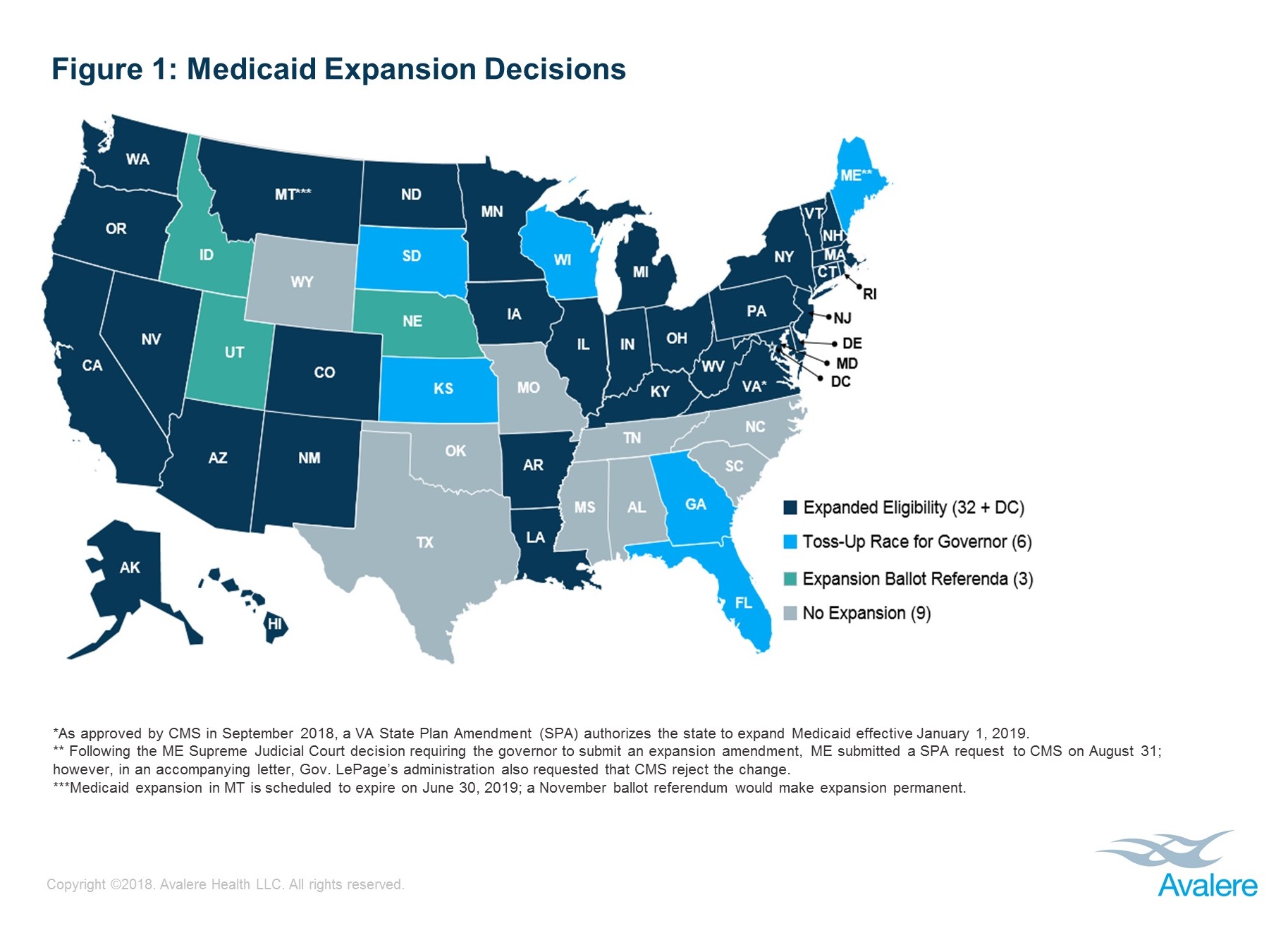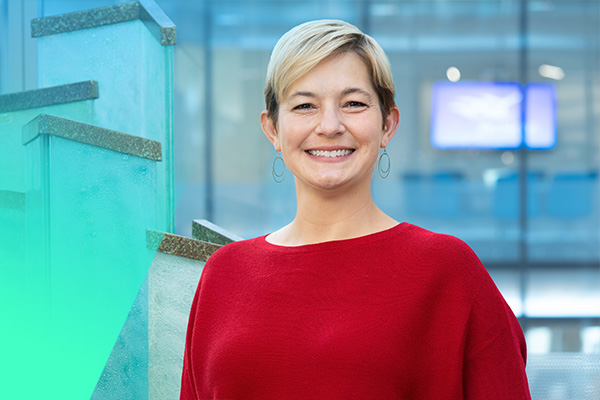2.7 Million People Could Gain Access to Medicaid Coverage Based on Outlook for State Elections
Summary
New analysis from Avalere finds that 2.7 million individuals from states that have not expanded Medicaid could gain Medicaid coverage should their newly elected governors decide to expand the program or states pass expansion referenda on their ballots.Fourteen of the 36 states that are holding gubernatorial elections in November 2018 have not expanded Medicaid. Of those, 6—FL, GA, KS, ME, SD, and WI— are considered “toss-ups” and could seek to expand if the Democratic candidate is elected governor, subject to approval from their legislatures. If these 6 states were to expand, approximately 2.4 million individuals could gain access to Medicaid coverage. To date, 32 states and DC have decided to expand Medicaid under the Affordable Care Act, including VA, which plans to expand in 2019 (Figure 1).
“In states with competitive gubernatorial races, many candidates are making Medicaid expansion a key differentiator,” said Elizabeth Carpenter, senior vice president at Avalere. “Depending on the election results, we could see Medicaid expansion on the agenda again in states across the country.”
Similarly, Medicaid expansion ballot referenda in 3 states—ID, NE, and UT—could lead to expansion, regardless of governors’ elections results. If voters in these 3 states decide to expand coverage, an additional 325,000 people could be enrolled in 2019. In combination with the people who could gain coverage in the “toss-up” states, approximately 2.7 million people could be newly covered by Medicaid in those 9 states combined.
“The popularity of Medicaid expansion has risen, particularly in states with high rates of uninsured,” said Chris Sloan, director at Avalere. “Although state legislatures can restrict the governor’s authority to expand Medicaid unilaterally in certain states, changing voter preferences around expansion may put pressure on legislators, many of whom also face reelection in November.”
Methodology
Avalere’s election outlook is based on polling data reported by the Cook Political Report 2018 Governor Race Ratings as of October 26, 2018. Estimates of expected Medicaid enrollees assumes non-expansion states expand coverage under the Affordable Care Act in 2019 based on the 2017 American Community Survey 1-Year Public Use Microdata Sample of the individual health insurance market and uninsured populations with incomes under 138% of the federal poverty limit (FPL). Avalere assumes negligible growth in the sampled population between 2017-2019 and does not grow enrollment from the 2017 base year. All enrollment numbers exclude dual eligible beneficiaries.
For more on Medicaid policy changes, connect with us.
Learn More






